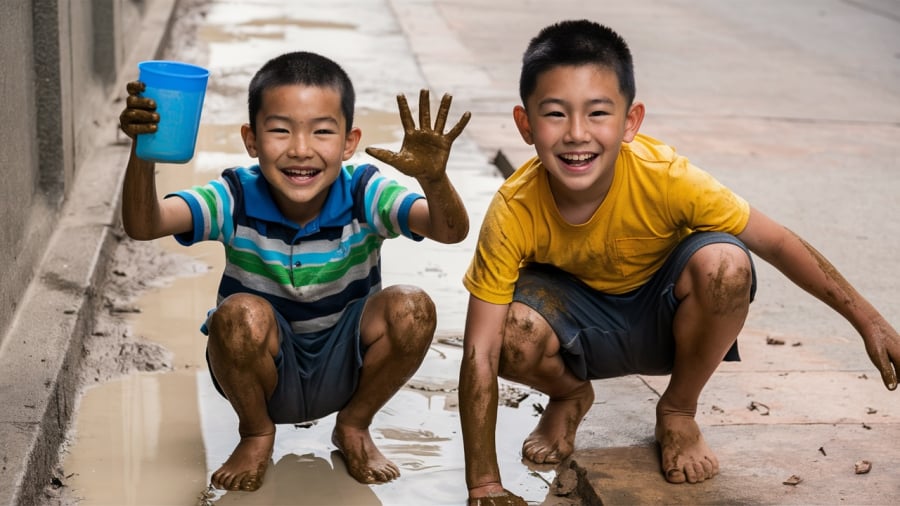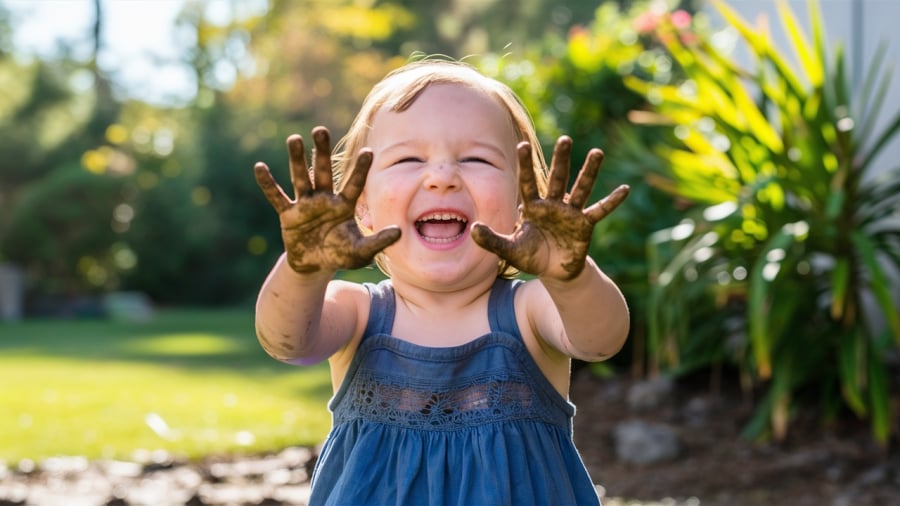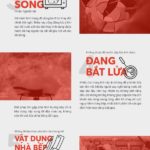The renowned Chinese educator, Tao Xingzhi, emphasized the importance of liberating the mind and granting freedom to children. He believed that children need space, time, and liberty to grow and learn from their surroundings.
In Tao’s view, allowing children to explore and get “messy” is the key to their full experience of life. He warned that if we restrict children’s curiosity due to concerns about dirt and mess, we risk impeding their development.
Educational psychologist Wang He from China shared an interesting insight related to child-rearing, especially concerning children often deemed “messy.” Wang, a neatness enthusiast, always desired a tidy home free from grime. However, reflecting on her experience raising her young daughter, she realized that, in hindsight, she would not have prioritized cleanliness to the same extent.
She recalled instances where her daughter wanted to eat by herself, but Wang’s concern about potential messes led her to not allow it. Consequently, even at the age of seven, her daughter still needed assistance during mealtimes. Additionally, when her daughter played with friends and got muddy, Wang would scold her to stop. Despite her daughter’s interest in art, Wang only allowed her to draw on paper due to her fear of messes. Over time, her daughter became less enthusiastic and curious.

In Tao’s view, allowing children to explore and get “messy” is the key to their full experience of life.
According to Wang, parents who constantly warn their children about not touching things or getting dirty are actually limiting their exploration of the world, leading to a lack of confidence and happiness in children. While housekeeping and laundry are necessary, if they impede children’s self-discovery and development, they can cause more serious harm.
Wang emphasized that curiosity and exploration are vital aspects of a child’s growth, and parents should not let their anxiety about dirt interfere with this process.
This story reminds us of the French writer Jean Henri Fabre, author of “Insects.” As a child, Jean Henri was fascinated by nature and often lay on the grass to observe ants. This careful observation accumulated knowledge that later contributed to his renowned book. If his parents had hindered his explorations due to hygiene concerns, we might have been deprived of these valuable works about insects.
When children are free to play and explore, their senses have the opportunity to thrive. They will encounter different textures, diverse scents in the air, stimulating the development of their olfactory and visual senses. Therefore, parents should encourage their children to go outside and play, even if it means getting dirty. These experiences are far more valuable than maintaining cleanliness.
Research by experts in North America has shown that creativity stems from curiosity and a penchant for exploration. Messy-seeming activities like scribbling, mud-jumping, or taking apart toys reflect children’s innate desire to explore their world.
Thus, respecting children’s desire to explore is crucial, and a preference for cleanliness should not hinder their creativity.

Respecting children’s desire to explore is crucial for their development.
Benefits of Messy Play for Children:
Happier Children through Messy Play
Playing in the mud is not just recreational but also beneficial for a child’s mental well-being. Research indicates that soil contains natural bacteria that can stimulate nerve cells to produce serotonin. This plays a crucial role in regulating mood, leading to improved happiness and comfort in children. When allowed to indulge in messy play, children not only enjoy themselves but also enhance their mood and reduce the risk of depression.
Boosted Immune System
Experts recommend exposure to nature, especially the bacteria found in soil, as it positively impacts children’s health. These experiences strengthen their immune system, providing better resistance to illnesses. In fact, there is a phenomenon called “nature deficit disorder,” which is on the rise due to technology use. Children who spend less time outdoors are at risk of issues like lack of focus, depression, and even obesity.
Outdoor Play Benefits
Children who regularly play outside tend to be happier and more content. This leads not only to lower blood pressure but also effectively reduces stress. Outdoor time provides opportunities for social interaction and the development of essential life skills.
Developing Character through Outdoor Adventures
When children are encouraged to explore and lead their outdoor play, they become more curious and adventurous. Confidence in accepting challenges and self-motivation also emerges. This is vital for building character and equipping them to face future difficulties more effectively.
In conclusion, messy play is not just enjoyable but also a critical factor in children’s holistic development. Encouraging children to engage in outdoor activities is essential for fostering a generation that is both healthy and happy.
1. Excessive Protection: Overprotecting children from challenges and risks can hinder their ability to develop problem-solving skills and resilience.
2. Strict Control: Authoritarian parenting styles that emphasize obedience and punishment can stifle creativity and critical thinking.
3. Lack of Emotional Warmth: Children need emotional support and positive interactions to thrive. A lack of emotional warmth can lead to lower self-esteem and less motivation to explore and learn.
4. Neglect: Neglecting a child’s emotional, physical, or educational needs can have severe consequences on their cognitive development, often resulting in lower intelligence and poorer academic achievement.
5. Over-criticism: Constant criticism and negative feedback can damage a child’s self-worth and confidence, impacting their motivation to learn and try new things.
1. Encourage Exploration: Create a safe and stimulating environment that encourages children to explore, ask questions, and discover new things.
2. Provide Challenges: Offer age-appropriate challenges and tasks that push children slightly beyond their comfort zone, helping them develop resilience and a growth mindset.
3. Foster Creativity: Engage children in creative activities like art, music, and dramatic play, which promote imagination and critical thinking skills.
4. Positive Discipline: Use positive discipline techniques that teach self-control and problem-solving, rather than relying solely on punishment.
5. Read and Discuss: Reading to children and discussing a variety of topics helps expand their vocabulary, knowledge, and understanding of the world.
Mothers’ Need for Awareness of Dual Activity of Breastfeeding and Watching TV
In the contemporary world, in which technology pervades our lives, some mothers tend to soothe their babies through nursing while simultaneously watching television. Although this practice may not appear to affect the infant, studies show that it can in fact have dire repercussions on the baby’s well-being, both in terms of physical health and mental growth. In this article, we will look at the possible reasons for this activity and its potential outcomes.


































